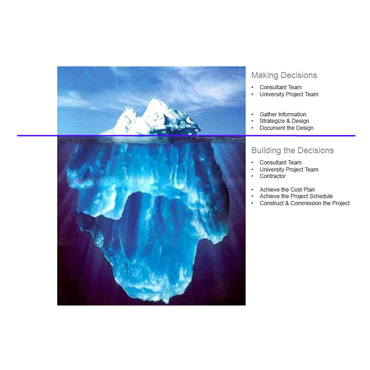John MacDonald
I’ve been reading an article entitled Why You Should Use an Architect for Your Project, from the 2011 Ontario Association of Architects "Profiles 2011" Membership guide. Although the article is interesting, informative, and mostly on target in the mind of this particular architect, I couldn’t help but wonder how a broader audience receives its message.
The article basically takes the point of view that a professional can help you make informed and important decisions about your project, with your best interests in mind. So far so good. It also points out that your project can benefit from the architect’s perspective on how the project can contribute to the quality of our communities and public interest.
That’s what got me thinking about two items: assistance, and public benefit.
How believable is it, in a world of salesmanship and shilling, that someone would actually get in your corner and help you with your project FROM YOUR POINT OF VIEW AND FROM YOUR BEST INTEREST? Especially if that professional had a public duty as well?
- The best customer assistance is the assistance that helps you buy: to suit your need, your budget, and your aspirations.
- The worst customer assistance is the salesmanship that sells: to suit the salesman’s bottom line and his need to move inventory, to fit you to his already designed product.
In our fast-paced world of demand creation (by watching TV I’ve discovered I have diseases that I thought were just normality, and needs I never knew I had!) who really believes that a professional can work in your best interest, and take your point of view? Isn’t everyone working from their own self-interest? How can I trust someone helping me to buy my project?. And when we introduce the idea of a public duty or a public benefit to your project, are we undermining the idea that we’re really in your corner? How can the idea of public interest be important to you, undertaking a private project?
The lawyer doesn’t need to take the public interest into account. Only yours. The lawyer works in an adversarial system where if mine says black your lawyer will say white. That’s advocacy, and the judge understands it. The doctor works as a professional to assist you with your health. Full stop. Not to balance your health with the public good. As a bonus, the doctor usually sends her bill to someone else, not you.
Why then should the architect, involved in so little of our community’s construction (less than 5% of building activity by some estimates), need to take public benefit into account when serving a client, unless the client is actually a public entity itself? We seem to be rather alone in this thinking, although we cling to the notion that what gets built by private interest inevitably creates the public realm, so it should contribute to that realm as well.
A project contains thousands of decisions, most of which are interrelated and have ramifications on each other and the usefulness of the finished product. Designing a building is a bit like crafting the visible part of the iceberg. That 10% above the waterline represents the decisions. The 90% below the waterline is the real project cost and the real ramifications of those decisions. Architects, and I count myself among them, firmly believe that by paying careful attention to those decisions, that initial “above-the-water” investment and consideration, the full project will come together in a way that supports your goals, and to your benefit.
It’s not enough, however, for just the architect to believe it. Both client and designer must work together to understand and achieve a great design. In a world where almost all our decisions are not about creating, but about choosing from the shelf (this model of car over that, this model of house over that), it’s tough to undertake a process of decisions that leads to your own unique design. Why not buy it off the shelf?
And tougher still to believe that a professional architect, designer, or engineer is really in your corner, working for both your and our best interest.
Believe it! Stay a bit skeptical, but give it a chance!




